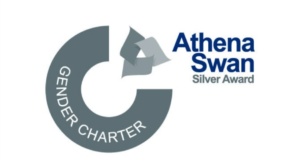University of Exeter to highlight key threats and opportunities at COP28

Nature-based schemes are criticised but could be crucial in offsetting methane
The University of Exeter will be highlighting key climate threats – and opportunities to move towards a sustainable future – at the COP28 climate change conference, which starts today.
The University has a packed itinerary for the UN Climate Change Conference, held this year in Dubai, United Arab Emirates, as it seeks to use its world-leading climate science to influence the action needed to combat climate change.
Exeter has worked with its international partners on a number of major programmes, which it will present on the world stage at COP28.
These include the Global Carbon Budget, an annual report on global carbon emissions and sinks and a key measure of progress towards the goals of the Paris Agreement, which will be launched on 5 December.
The Global Carbon Budget has since 2006 provided a vital reality check on targets to cut fossil CO2 emissions and global warming, and is the work of more than 100 people from 70 organisations in 18 countries, led by the University of Exeter’s Professor Pierre Friedlingstein.
The University will also be launching the first ever Global Tipping Points Report on 6 December.
The report, led by Exeter’s Global Systems Institute, is the most comprehensive report ever on both negative and positive tipping points as well as the governance required to meet the major threats and opportunities ahead.
The University’s collaboration with the Private Infrastructure Development Group will see the launch of a report on 7 December that aims to enhance understanding of climate change in Africa and the investment needed in the region.
The Exeter-led Economics of Energy Innovation and System Transition (EEIST) project, which develops cutting edge solutions to support government decision-making on low-carbon innovation and technological change, will be presenting reports on its work in Brazil, India and China at the UK Pavilion on 11 December.
As well as climate science, the University of Exeter is leading an interdisciplinary programme of poetry, education, theatre and music that will address world leaders with the aim of provoking empathy and sparking the imagination.
Highlights from the ‘We Are The Possible’ programme include the 12 Poems for 12 Days of COP28 project, which will see narrators including climate leader Christiana Figueres read a poem from a new dual language anthology made for COP28 and translated into Arabic by Exeter’s postgraduate translation students.
Professor Lisa Roberts, President and Vice-Chancellor of the University of Exeter, said: “The UN Climate Change Conferences are critical to achieving international action on the climate and ecological crisis, involving governments, businesses and organisations from across the globe.
“I am proud that the University of Exeter is building on the legacy of its successful programmes at COP26 and COP27 by presenting its broadest ever range of projects at the UN Climate Change Conference at this critical time.
“To showcase our work at COP28 on this global stage is an important part of our mission to use the power of our research, education and partnerships to create a greener, fairer and healthier world.”
COP28 is being held from 30 November to 12 December at the Expo City in Dubai, United Arab Emirates.
For a full list of University of Exeter-led events and activities at COP28 visit our Green Futures website and follow @uniofexeternews on social media for news and updates during the conference.



